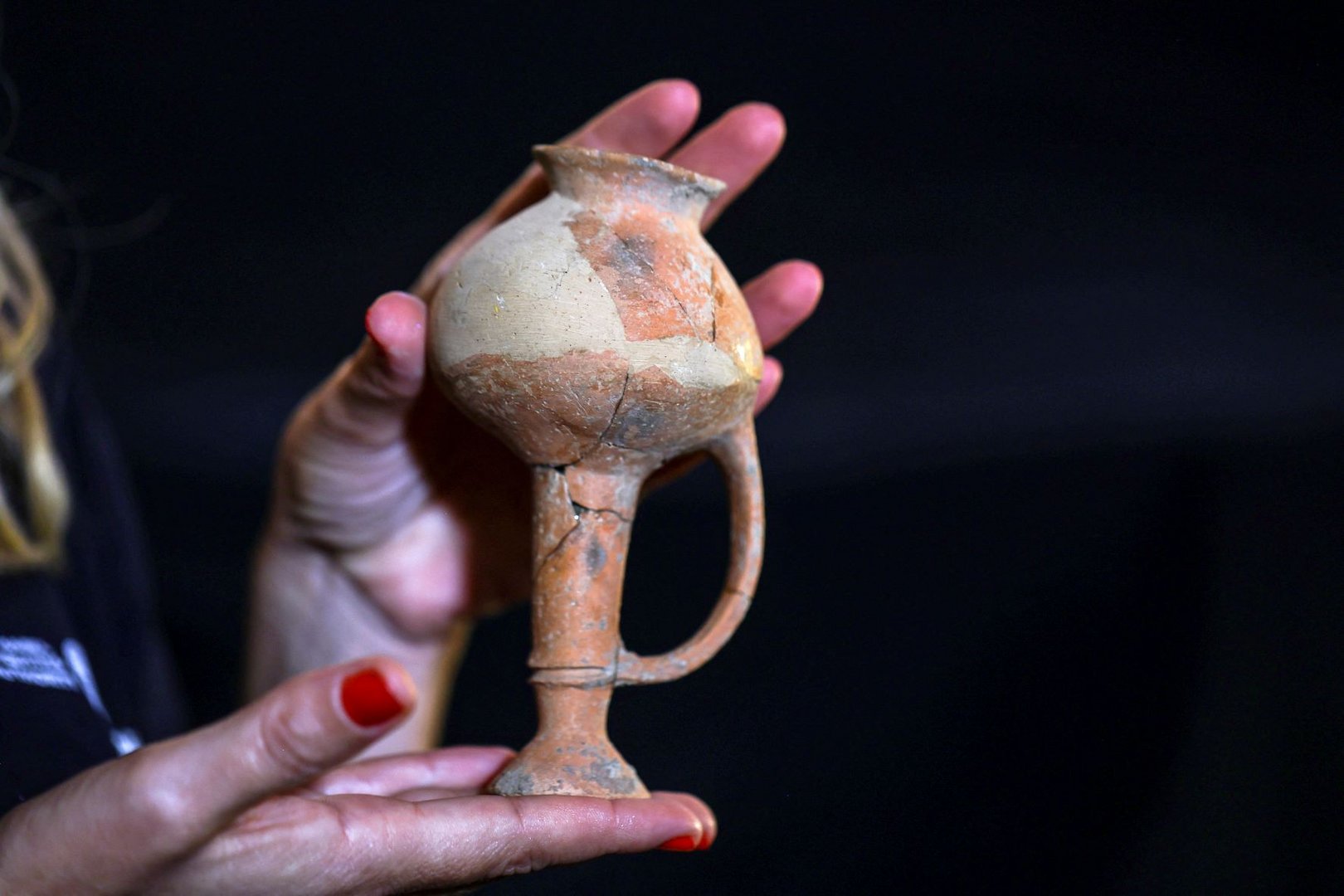Narcotics were consumed in antiquity for medicinal and ritualistic purposes
Late Bronze Age juglets discovered in Israel containing traces of opium were produced in Cyprus, further fuelling a 1960s theory that these vessels were used in bottling the substance as an ancient marketing strategy in a pre-literal world.
The Cypriot vessels, known as base-ring juglets, were discovered in Tel Yahod a few weeks ago at an ancient Canaanite burial site with traces of opium in them, where they were likely used in burial ceremonies and for offerings for the dead in the afterlife.
The findings date back to the 14th century BC, the researchers from the Weizmann Institute of Science, Tel Aviv University, and the Israel Antiquities Authority said in their study, published in the Archaeometry journal.
Speaking to the Sunday Mail, assistant research professor at the Archaeological Research Unit of the University of Cyprus Dr Artemis Georgiou said: “The base-ring ware juglets were certainly made on the island.”
It is safe to assume that as the juglets were produced here, the ‘bottling’ of the opium also took place here and the substance was later shipped abroad.
Drawing attention to the shape of the juglets, Georgiou said that archaeologist Robert Merrillees theorised in the 1960s that they were shaped like an inverted poppy seed, the plant from which opioids are extracted.
“Merrillees therefore suggested that the form and decorative treatment of these vessels functioned as a non-verbal marker of their specific contents and that this was one of the earliest marketing strategies employed by ancient producers and traders to advertise the contents of these containers in a pre-literal world,” she said.
Georgiou added that with this most recent study published about the findings in Israel Merrillees’ theory seems to be gaining more ground.
Other studies on similar juglets found in the site at Tel Beth Shemesh Israel, however, have not found opioids, but aromatic oils instead.
Precisely how opium was used by the Canaanites in their burial rituals, remains unknown, the Israeli researchers said following their findings.
“It may be that during these ceremonies, conducted by family members or by a priest on their behalf, participants attempted to raise the spirits of their dead relatives in order to express a request, and would enter an ecstatic state by using opium,” said Ron Beeri of the Israel Antiquities Authority.
“Alternatively, it is possible that the opium, which was placed next to the body, was intended to help the person’s spirit rise from the grave in preparation for the meeting with their relatives in the next life,” Beeri said.
Georgiou echoed this sentiment saying: “There are sufficient testimonies confirming that narcotics were consumed in antiquity for medicinal purposes and/or for cultic/ritualistic practices as hallucinogens during rituals.”
Considering the large numbers of such vessels in burials, both within Cyprus and in sites across the Levant, it is not unlikely that opium contained in base-ring ware juglets was consumed during funerary rituals in honour of the deceased, and/or as a means of alleviating the pain of losing a loved one.
Commenting on where the Cypriot vessels may have originated from on the island, Georgiou said that studies on the clay of these juglets show that they were produced at various sites across the island, making it difficult to pinpoint the exact area of production.

The opium contained in juglets was probably consumed during funerary rituals as a means of alleviating the pain of the loss.
A most unusual aspect of these juglets were that they were entirely handmade and not turned on a wheel, as most pottery at the time.
“Even though it may seem like an inconvenience, it was thanks to the handmade technique that the ancient Cypriot potters managed to produce such eggshell-like and high-quality vessels.
“Base-ring ware vessels are characterised by extremely thin walls and a metallic-like texture. Indeed, they are considered to emulate metallic (perhaps bronze) prototypes,” she said.
Base-ring ware vessels are typical of Cypriot production of ceramic finewares, that is of vessels used for the consumption and serving of food and drinks, during the Late Bronze (around 1650-1100 BC).
“This distinctive pottery is one of the two main ceramic wares used for the production of tableware, which were used for the consumption of food and drink. Their use in Cyprus was widespread. They were also exported in very large numbers in the Levant, especially at the coastal centres, as well as in Egypt, on the Nile River Delta,” she told the Sunday Mail.
Asked to comment about Cypriot burial traditions in the same period, she said that the sites were in the form of a round/square chamber dug into soft rock, with a short ditch called a ‘dromos’ providing access to the funerary chamber.
“Base-ring ware jugs and juglets as well as bowls are regularly found in the period’s Cypriot contexts and we believe that these are the remains of funerary feasts,” she said.
These were collective tombs, used for the interment of people over several generations, and were probably members of the same family. The deceased were buried with precious objects, such as gold jewellery, bronze bowls and weapons, local and imported pottery vessels and many other gifts, she said.







Click here to change your cookie preferences